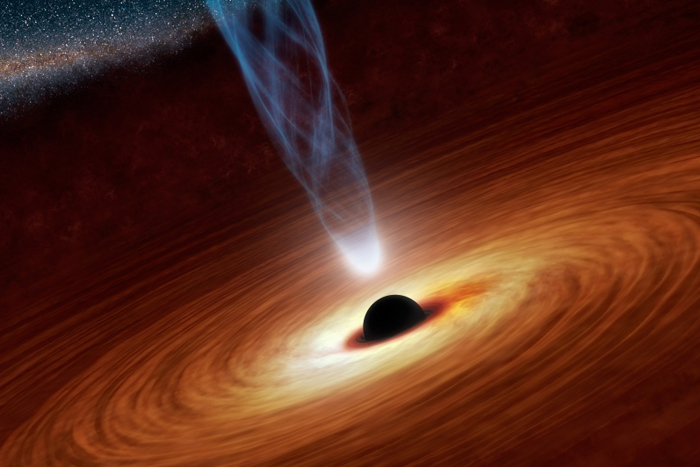
Breaking Down the Science of Interstellar (Google Hangout)

Kelen Tuttle, writer and editor for the Kavli Foundation, contributed this article to Space.com's Expert Voices: Op-Ed & Insights.
In the film "Interstellar," the Earth grows less habitable by the day. Choked by dust and with food sources dwindling, four explorers set off to find a more habitable planet. On the other side of a wormhole, they find a dozen potentially habitable planets orbiting an enormous black hole, and begin their exploration to find a new home for humanity. ['Interstellar' in Pictures: A Space Epic Gallery ]
The film is already a hit, in part because it's steeped in real science and theory. From the look of the wormhole to the way the black hole alters the astronauts' concept of time, "Interstellar" seeks to stay true to science . But where does the movie's dedication to science end and the fiction begin?
On Wednesday, November 26, from 3:00 p.m. to 3:30 p.m. EST, three astrophysicists — Mandeep Gill, Eric Miller and Hardip Sanghera — will separate the science of "Interstellar" from its fiction and answer viewer questions. You can join the Kavli Interstellar hangout live, which will feature:
Mandeep Gill, an observational cosmologist at the Kavli Institute for Particle Astrophysics and Cosmology, located at Stanford University and SLAC National Accelerator Laboratory. His research focuses on gravity's bending of light and the mysteries of dark matter and dark energy.
Eric Miller is a research scientist at the MIT Kavli Institute for Astrophysics and Space Research, where he studies diffuse gas to understand the structure of mass and how galaxies interact with their surroundings. He is a member of science and instrument teams for the Chandra and Suzaku X-ray Observatories, with active collaborations in the U.S. and Japan.
Hardip Sanghera is a member of the Cambridge Planck Analysis Centre, based in the Kavli Institute for Cosmology Cambridge.He supports the European Space Agency's space-based Planck observatory, which recently completed mapping the universe's earliest light.
Get the Space.com Newsletter
Breaking space news, the latest updates on rocket launches, skywatching events and more!
The conversation, hosted by The Kavli Foundation, will be broadcast live on Google Plus. Questions can be submitted before, and during, the webcast by emailing info@kavlifoundation.org or using the hashtag #KavliLive on Google+ or Twitter.
Follow all of the Expert Voices issues and debates — and become part of the discussion — on Facebook, Twitter and Google+. The views expressed are those of the author and do not necessarily reflect the views of the publisher. This version of the article was originally published on Space.com.
Join our Space Forums to keep talking space on the latest missions, night sky and more! And if you have a news tip, correction or comment, let us know at: community@space.com.
A former contributor to Space.com, Kelen is currently the Senior Director of Creative Services for GeneDx where she acts as an in-house agency dedicated to bringing the GeneDx brand to life consistently and effectively. Prior to this position she was a freelance science writer and editor after stints as the EIC of Symmetry Magazine and six years at the SLAC National Accelerator Laboratory, She obtained her MS in Science Journalism from Boston University after her undergraduate work in Physics and Astrophysics from Carleton College.









